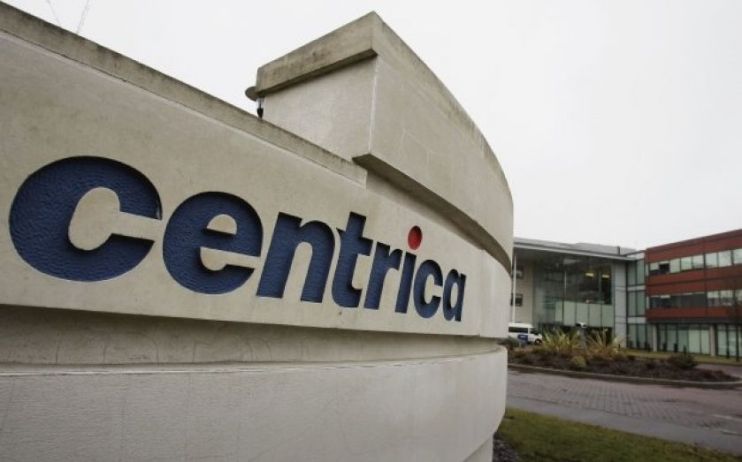Centrica slams Ofgem after regulator hesitates over ringfencing

Centrica boss Chris O’Shea has reignited calls for the ringfencing of consumer balances, and has urged market regulator Ofgem to speed up the process of enacting reforms across the energy sector.
He argued it was vital that the customer’s money was protected by suppliers, and used only for the purchase of energy supplies – not to fund commercial ambitions at the company.
The energy chief said: “When customers pay up front for their energy, they are trusting their supplier to look after their hard earned money. They would be appalled to learn their money was being used to fund day to day business activities, but that’s exactly what’s happening today.”
Earlier this week, Ofgem announced a raft of reforms to the energy sector, but has stopped short of backing complete ringfencing of customer balances – a source of frustration for Centrica.
O’Shea explained: “We welcome this consultation but we are worried at the length of time it is taking to make the changes necessary and we urge Ofgem to work with greater urgency to protect customers fully and to prevent the events of last year ever happening again.”
This follows an industry crisis which has seen 29 suppliers collapse, directly affecting over four million customers, with household energy bills set to spike to at least £2,800 per year this October.
Centrica is the owner of British Gas, the UK’s biggest retail energy supplier – home to nine million customers.
While calling for industry-wide ringfencing, it has voluntarily protected £200m of customers’ money in a separate bank account.
O’Shea said: ” It’s not our money, it’s our customers’ money. Energy customers have overwhelmingly said that they expect their credit balances to be fully protected and it’s time we all acted in the interests of customers.”
This comes amid continued friction within the energy sector over the viability of ringfencing, with Octopus Energy publicly challenging the idea – while City A.M. understands multiple energy firms also have concerns, including Ovo Energy.
‘Bonkers’ to raise customer prices with ringfencing
Octopus is the UK’s fourth biggest energy firm with over three million customers.
It considers ringfencing to be an inadequate measure to tackle the causes and costs of supplier failure, which it considers driven by insufficient hedging and poor management.
The supplier notes Ofgem data which revealed an industry-wide lack of hedging was responsible for 85 per cent of the cost of failure during the crisis, alongside its own research which suggests it would put more pressure on consumers.
The energy firm calculates ringfencing would add up to £30 to customer bills every year, while increasing supplier profits.
Instead, Octopus favours an insurance protection policy for credit balances, comparable to the kind provided to holidaymakers use to protect bank deposits.
Its analysis suggests this would see greater protection for energy customers but cost five to ten times less than ringfencing proposals.
Greg Jackson, chief executive and founder of Octopus, said: “It’d be bonkers to raise customer prices and increase supplier profits when much cheaper alternatives would be at least as effective in protecting customers’ money. Crude ringfencing is financially illiterate, which is why it’s not used in other industries. Its proponents need to be honest that it would cost customers a lot more than it saves, and would actually drive up supplier profits.
The supplier is also calling for stringent rules on hedging and management of energy retailers to improve the resilience of companies and build a sustainable and healthy market.
Ofgem’s battle to reform energy sector
The policy dispute between two of the UK’s biggest energy firms has been exacerbated by market regulator Ofgem unveiling new financial measures this week to ensure suppliers can withstand future shocks – including protection for customer credit balances.
It has also outlined improvements to the financial health of suppliers, to ensure they can weather the current challenges and reduce the risk of failures
The watchdog has also called for protecting consumer credit balances and green levies when suppliers fail, to prevent the costs being picked up by consumers.
It also is pushing for a tightening of the rules on the level of direct debits suppliers can charge customers, to ensure credit balances do not become excessive.
This follows the unveiling of fit and proper person rules, stress tests and market stabilisation changes, alongside a consultation on a quarterly price cap.
While no decision has yet been made specifically on ringfencing, there is the possibility of a compromised measure, where suppliers may only be required to ringfence 30 per cent of customer credit balances.
The regulator has favoured ringfencing in its consultation, but recognised there may be a risk to supplier business models requiring 100 per cent customer credit balances to be protected.
It also appeared to discount Octopus’ proposal for a travel-style protections model, on the basis of prohibitive expense.
Commenting on the announced reforms, Dan Alchin, Director of Regulation at Energy UK said: “We’ve long called for stronger measures to ensure that new suppliers entering the retail market have the right expertise and financial resilience to withstand a volatile environment.”
“We also welcome moves to reduce the costs that are passed onto customers when suppliers exit the market – something that has been brought into sharp focus with nearly 30 providers having gone out of business since last August. However this would still leave customers facing substantial costs when a supplier fails, which underlines the importance of creating a sustainable retail market over the next few years.”
City A.M. understands from industry sources that Octopus and Centrica have both made bids for collapsed supplier Bulb Energy.
For all the latest Lifestyle News Click Here
For the latest news and updates, follow us on Google News.

